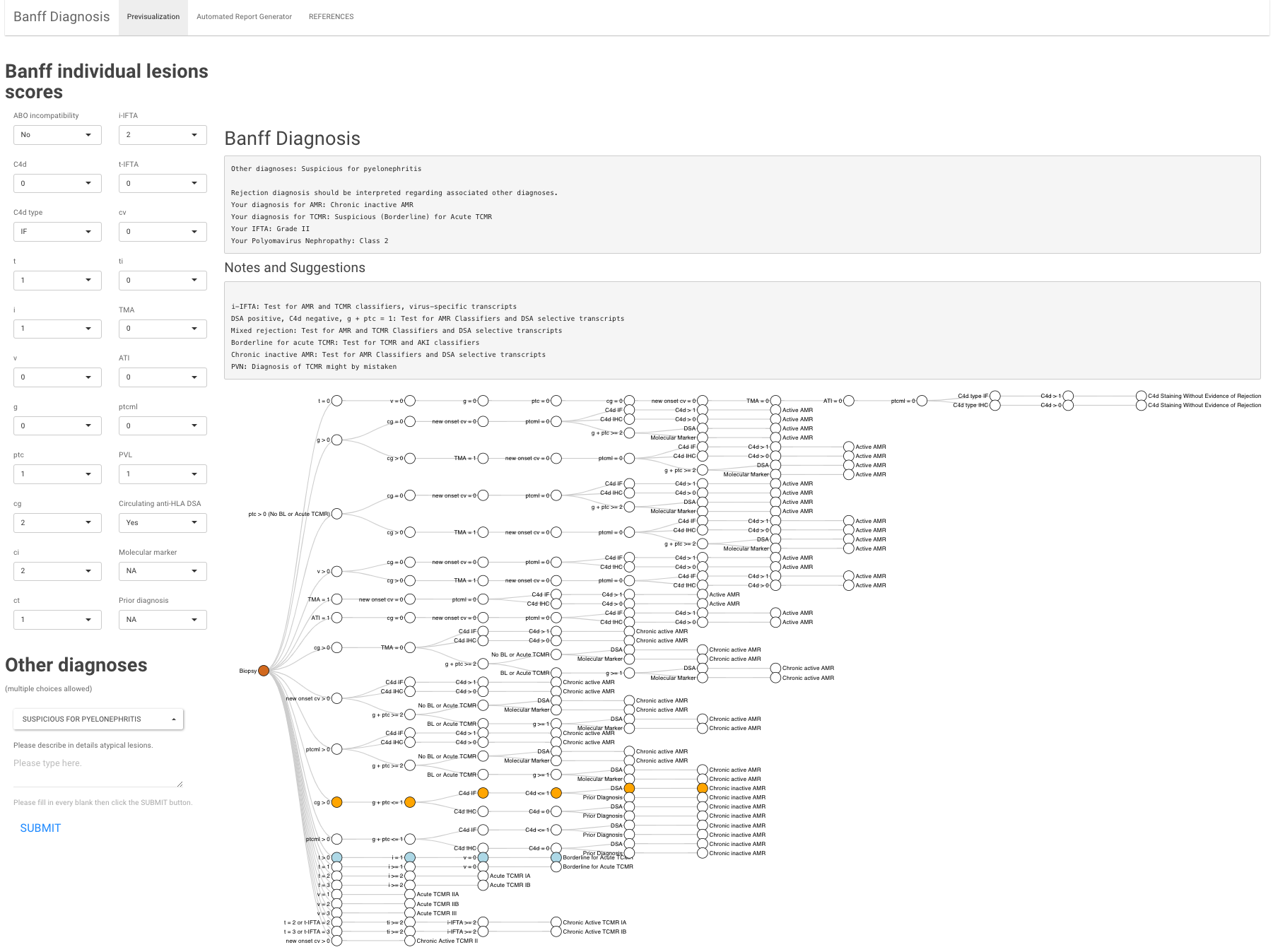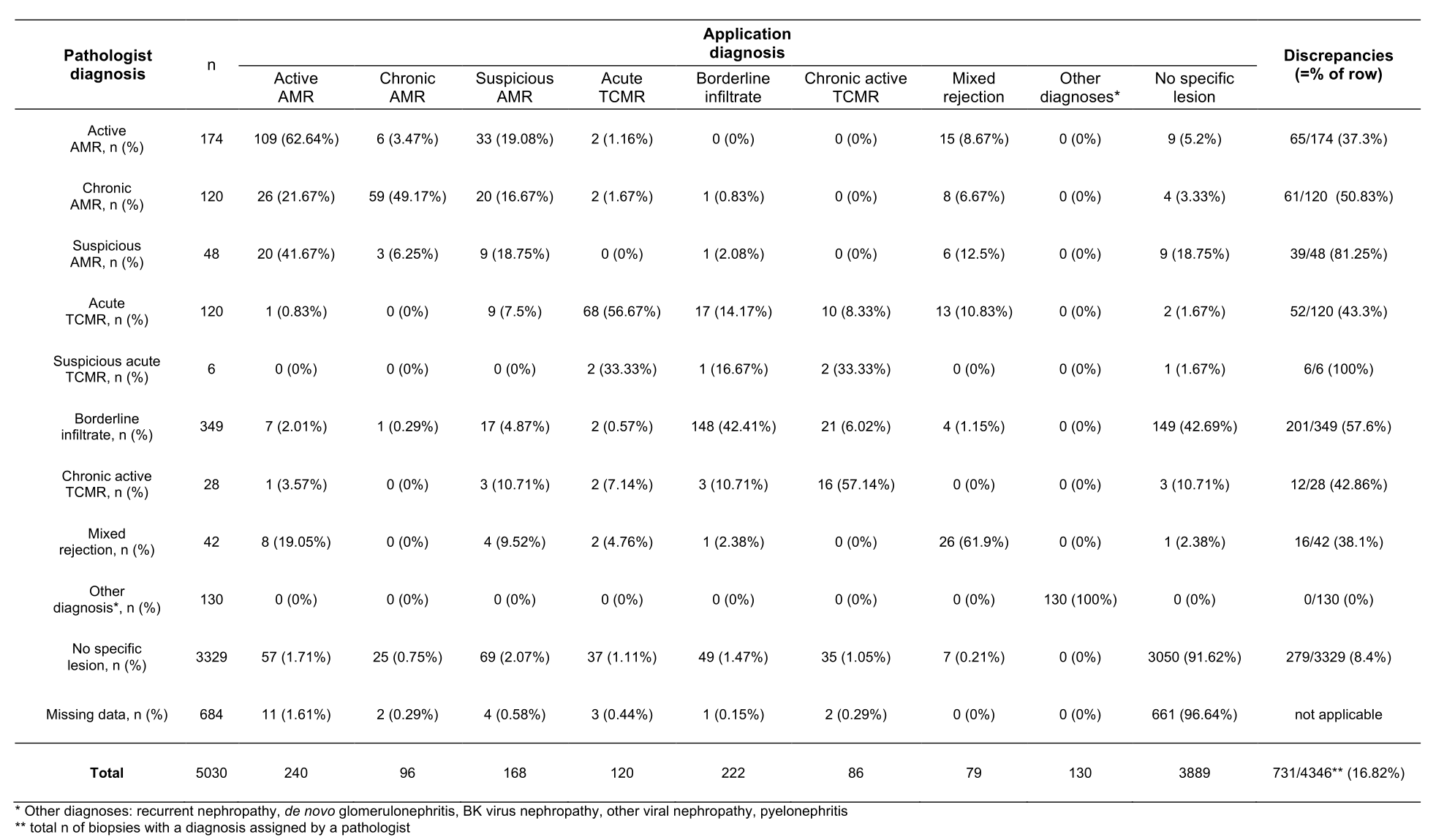Development of a Comprehensive Banff Automation System for Kidney Allograft Precision Diagnostics
D. Yoo1, J. Gueguen1, G. Divard1, M. Raynaud1, V. Goutaudier1, M. Rabant1, M. Haas2, M. Mengel3, O. Aubert1, A. Loupy1
1Paris Transplant Group, Paris, France, 2Cedars-Sinai Medical Center, Dept. of Pathology, West Hollywood, CA, 3University of Alberta, Edmonton, AB, Canada
Meeting: 2022 American Transplant Congress
Abstract number: 535
Keywords: Biopsy
Topic: Clinical Science » Organ Inclusive » 72 - Machine Learning, Artificial Intelligence and Social Media in Transplantation
Session Information
Session Name: Machine Learning, Artificial Intelligence and Social Media in Transplantation
Session Type: Rapid Fire Oral Abstract
Date: Tuesday, June 7, 2022
Session Time: 5:30pm-7:00pm
 Presentation Time: 5:30pm-5:40pm
Presentation Time: 5:30pm-5:40pm
Location: Hynes Room 210
*Purpose: Since 1991, the Banff classification has been the gold standard for kidney allograft rejection diagnostics. However, with time, the classification has become complex with many rules and possible scenarios, leading to possible errors and misclassifications. The 2019 Banff report appealed for a systematization and automation of Banff classification.
*Methods: We built a consortium comprising data scientists, clinicians, and pathologists. We collected all published Banff rules and integrated them into complex algorithms covering all possible scenarios to generate and automatize Banff classification. We converted the algorithms into an application to assign diagnoses as well as recommendations. We deployed the system in real life for 6 months and collected feedback including usability, consistency, and refinement for complex cases. We last compared the assessments of 5,030 contemporary biopsies assessed by pathologists with those provided by Banff automation.
*Results: We encoded all Banff rules and related scenarios (44 quadrillion combinations) and translated them into 45 effective diagnoses and 25 additional Banff recommendations. We devised a software that generates automated Banff reports with the biopsy corresponding diagnosis and nearest neighbour projection (Figure 1). Among the 5,030 biopsies, we found that the Banff automation reclassified 42.9% of AMR cases, 43.2% of TCMR, while 42.7% of biopsies labelled as borderline were reclassified as normal (Figure 2). Finally, the Banff automation-based diagnostics (AMR, TCMR) outperformed the stratification of long-term allograft failure as compared with the pathologist-based diagnostics.
*Conclusions: We built the first comprehensive, user-friendly, and fully integrated Banff automation system. This open access tool might improve reproducibility, consistency, thereby reducing misdiagnoses. Lastly, this system may show great benefits to standardize clinical trials and post-transplant patient management and treatment.
To cite this abstract in AMA style:
Yoo D, Gueguen J, Divard G, Raynaud M, Goutaudier V, Rabant M, Haas M, Mengel M, Aubert O, Loupy A. Development of a Comprehensive Banff Automation System for Kidney Allograft Precision Diagnostics [abstract]. Am J Transplant. 2022; 22 (suppl 3). https://atcmeetingabstracts.com/abstract/development-of-a-comprehensive-banff-automation-system-for-kidney-allograft-precision-diagnostics/. Accessed February 9, 2026.« Back to 2022 American Transplant Congress


